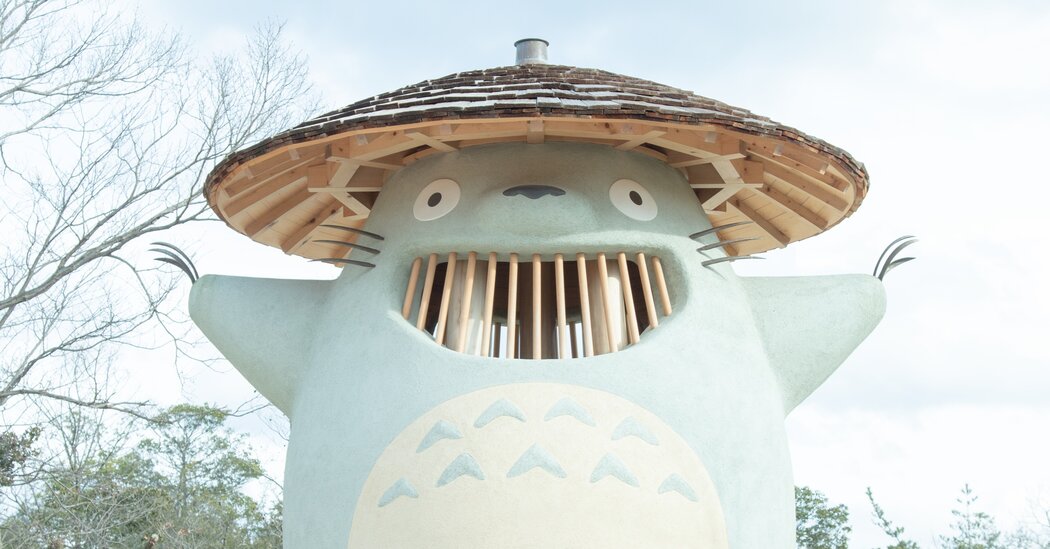Miyazaki knows that his work can be difficult — and he is, at all times, righteously defiant. “I must say that I hate Disney’s works,” he once declared. “The barrier to both the entry and exit of Disney films is too low and too wide. To me, they show nothing but contempt for the audience.” At home, Miyazaki is a celebrity, recognizable to the point of parody: caterpillar eyebrows, heavy, dark-rimmed glasses, sculpted white beard, cigarette. In 2019, the TV network NHK — Japan’s rough equivalent to the BBC — aired a four-part documentary chronicling Miyazaki’s creative process. It is a festival of grouchy agony, full of insults (“He’s not an adult yet,” he says of his then 39-year-old son Goro) and self-reproach (“I feel like a comb with missing teeth”). Miyazaki is the curmudgeon’s curmudgeon. Over the decades, he has dismissed everything from iPads (“disgusting”) to 1980s Japanese animation (“resembles the food served on jumbo-jet airliners”) to art created by artificial intelligence (“I strongly feel that this is an insult to life itself”). Many artists have high standards. Miyazaki’s are in outer space.
Disney is, famously, a vast corporate content farm, with all artistic choices carefully examined by an assembly line of executives, marketers, focus groups, etc. Whereas Miyazaki’s vision is absolutely his own. Despite its global success, Studio Ghibli has remained quirky and unpredictable, a direct reflection of the personalities of its founders. To this day, Miyazaki insists on meticulously hand-drawing his own storyboards. When his sketches go to Ghibli’s larger team for the technical work of animation, he checks every image, and if he sees something he dislikes he will erase it and draw right over it — explaining the whole time why it was wrong. For as long as he possibly could, Miyazaki resisted computer animation. He still refuses, on principle, to make sequels. He has long told parents that children should not watch his films more than once a year. (“Whatever experiences we provide them,” Miyazaki has said, “are in a sense stealing time from them that otherwise might be spent in a world where they go out and make their own discoveries or have their own personal experiences.”)
Miyazaki is now 82. He has tried multiple times, without success, to pass the creative torch. “I trained successors, but I couldn’t let go,” he once said. “I devoured them. I devoured their talent. … That…
Click Here to Read the Full Original Article at NYT > Travel…
